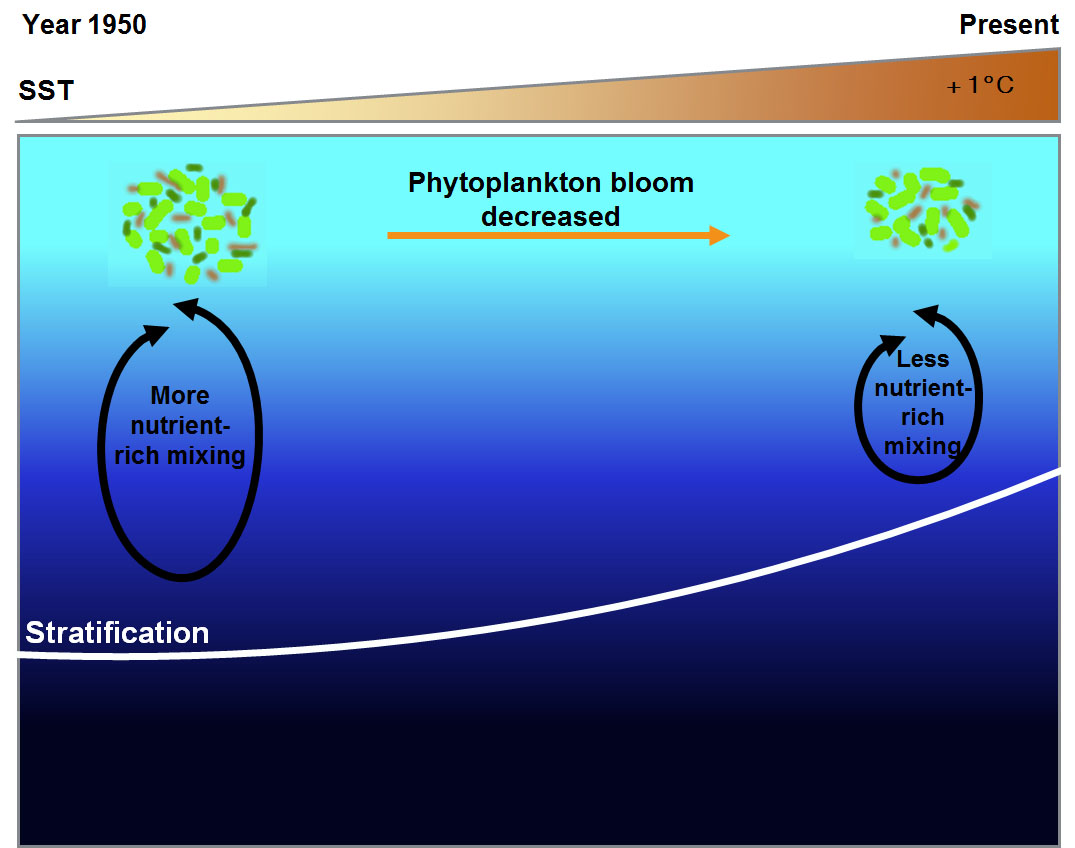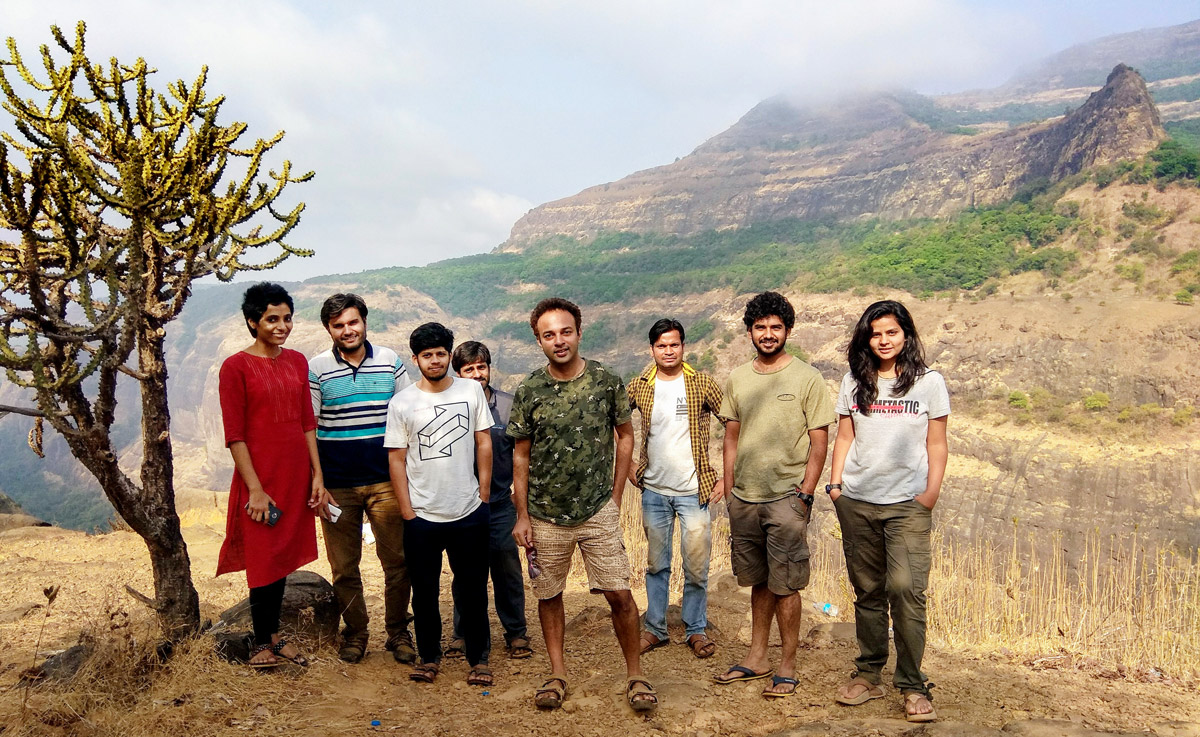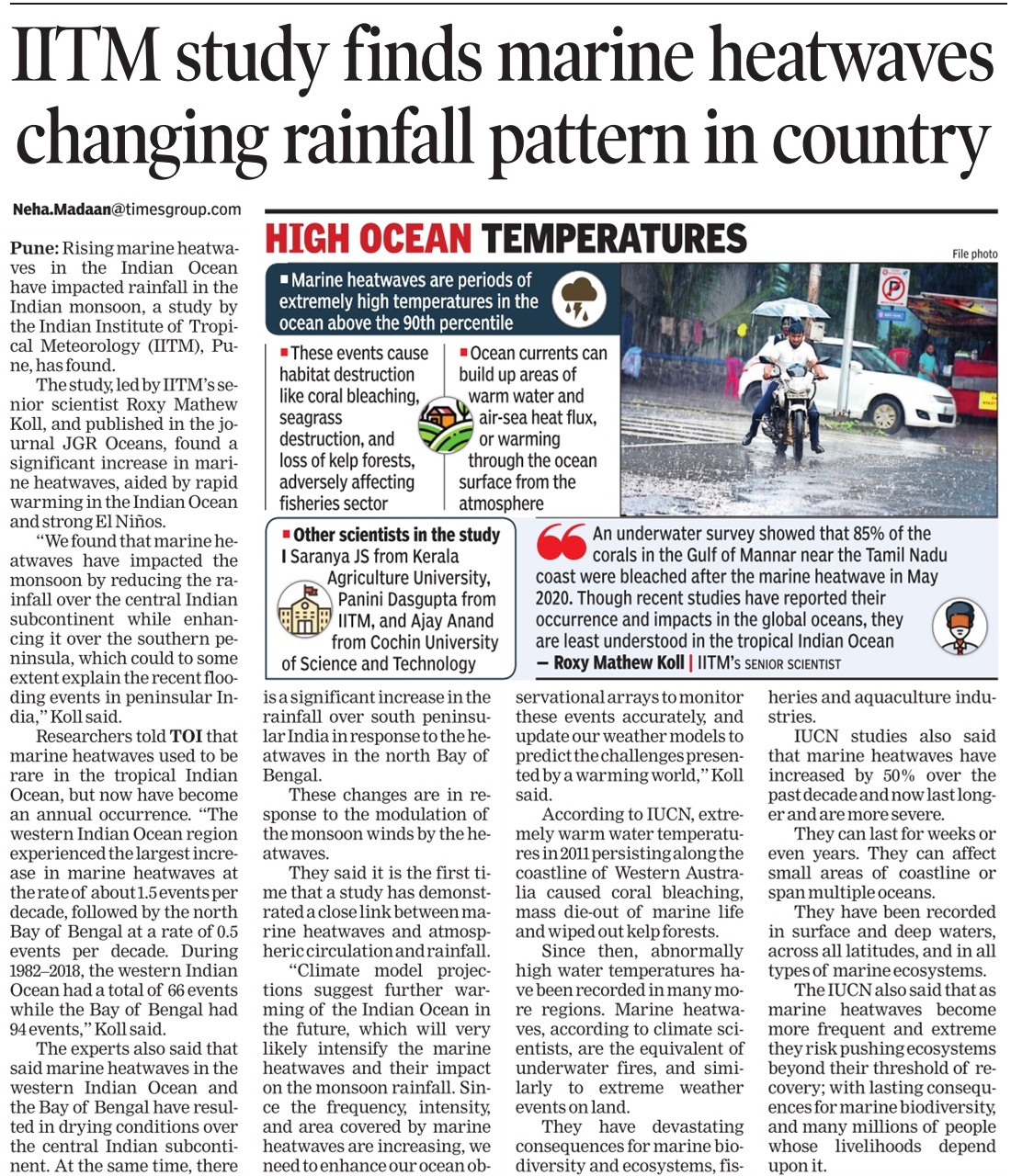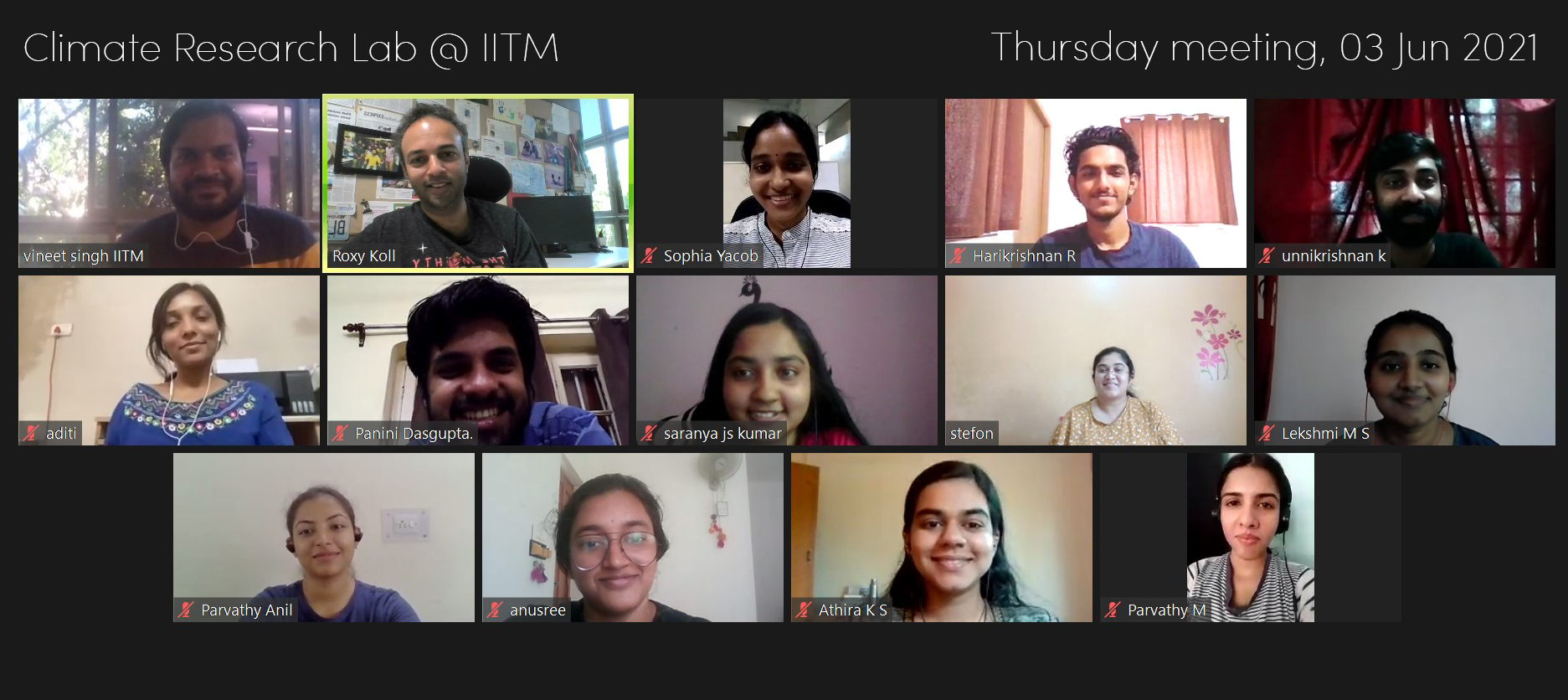| Aditi Modi | |
 | CAT Thesis [2014]: Potential impact of climate variability and change on the ocean primary productivity over the Indian Ocean Affiliation: Centre for Advance Training [CAT], IITM Publications: 1. Roxy M. K., A. Modi, R. Murutugudde, V. Valsala, S. Panickal, S. Prasanna Kumar, M. Ravichandran, M. Vichi and M. Levy, 2016: A reduction in marine primary productivity driven by rapid warming over the tropical Indian Ocean. Geophys. Res. Lett., 43, 826-833, doi:10.1002/2015gl066979 [pdf] [supplement]. 2. A. Modi and Roxy M. K., 2015: Evaluation of CMIP5 Earth System Model simulations of chlorophyll concentrations in the north Indian Ocean. IITM Scientific Reports, Submitted. |
| Abstract Marine primary productivity plays an inevitable role in the marine ecosystem processes, global biogeochemical cycles and have severe implications on cholera outbreaks. Western Arabian Sea is one of the most biologically productive region in the north Indian Ocean during boreal summer. This is also the region with the maximum rise in sea surface temperatures (SST) among the global oceans, during the past century. However, the long-term changes in marine productivity over this region, and the role of Indian Ocean warming in driving these changes have not been explored so far. While an earlier study suggests that among the tropical open oceans, western Indian Ocean has experienced the largest increase in marine phytoplankton, other studies point out that the trends in marine productivity are inconclusive. This is due to the availability of satellite data only for a limited period when these studies were conducted (~10 years). The present study utilizes quality controlled satellite observations of chlorophyll for an extended period (17 years), along with CMIP5 historical simulations, to explore the long-term trends in the chlorophyll and its response to climatic changes in the Indian Ocean. Apart from deciphering the chlorophyll trends in the Indian Ocean, the current study also serves as an evaluation of the CMIP5 models in representing the observed variability and change in marine productivity over the Indian Ocean. The results indicate an alarming decrease of up to 20% in marine primary productivity in the western Arabian Sea during the past half-century, with up to 30% reduction in the last two decades. The climate induced phytoplankton changes seem to be strongly coupled to changes in SST. However, the results shows no such long-term association between chlorophyll and surface winds. The results indicate that the significant decrease in primary productivity is driven by enhanced ocean stratification due to the monotonic warming in the Indian Ocean, which suppresses the nutrient mixing from the subsurface layers. The model sensitivity experiments performed with IITM-ESM confirms the results. Future projections with the CMIP5 simulations suggest that the Indian Ocean will continue to warm, leading to further reduction in marine productivity over the region.
| |





